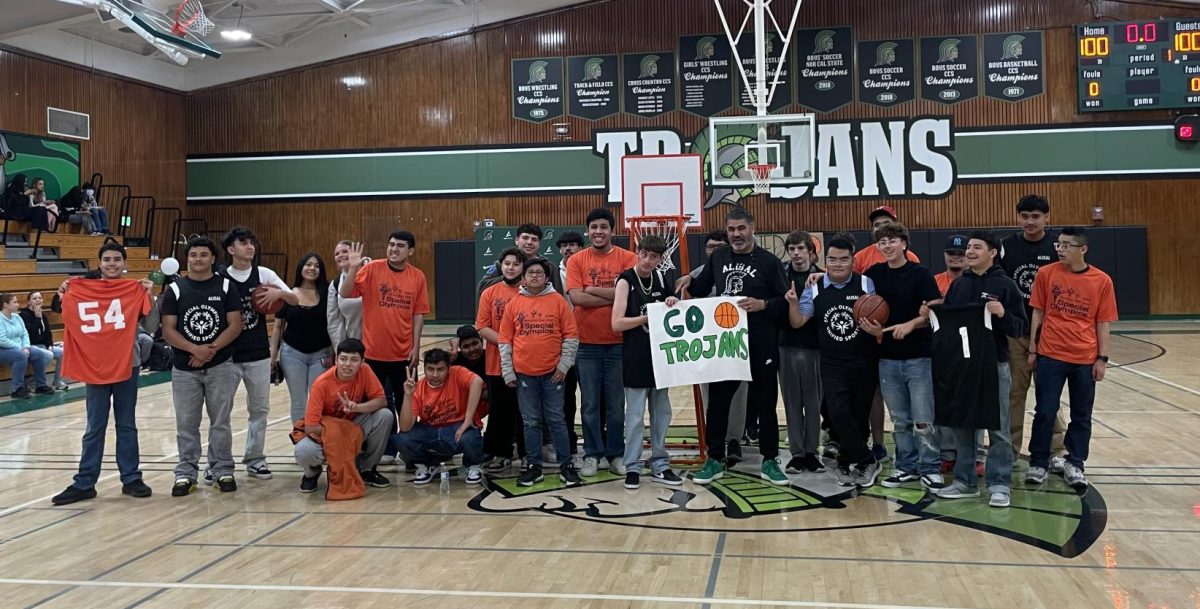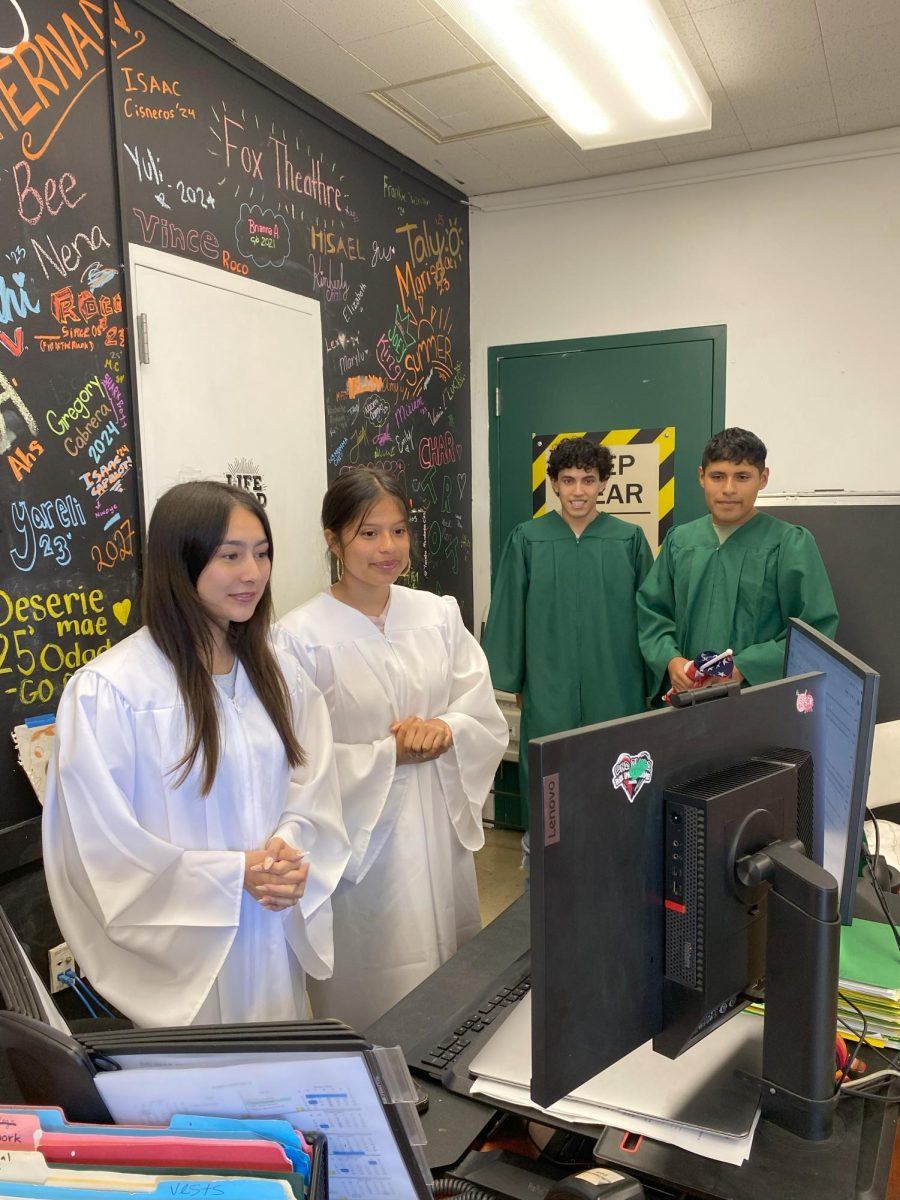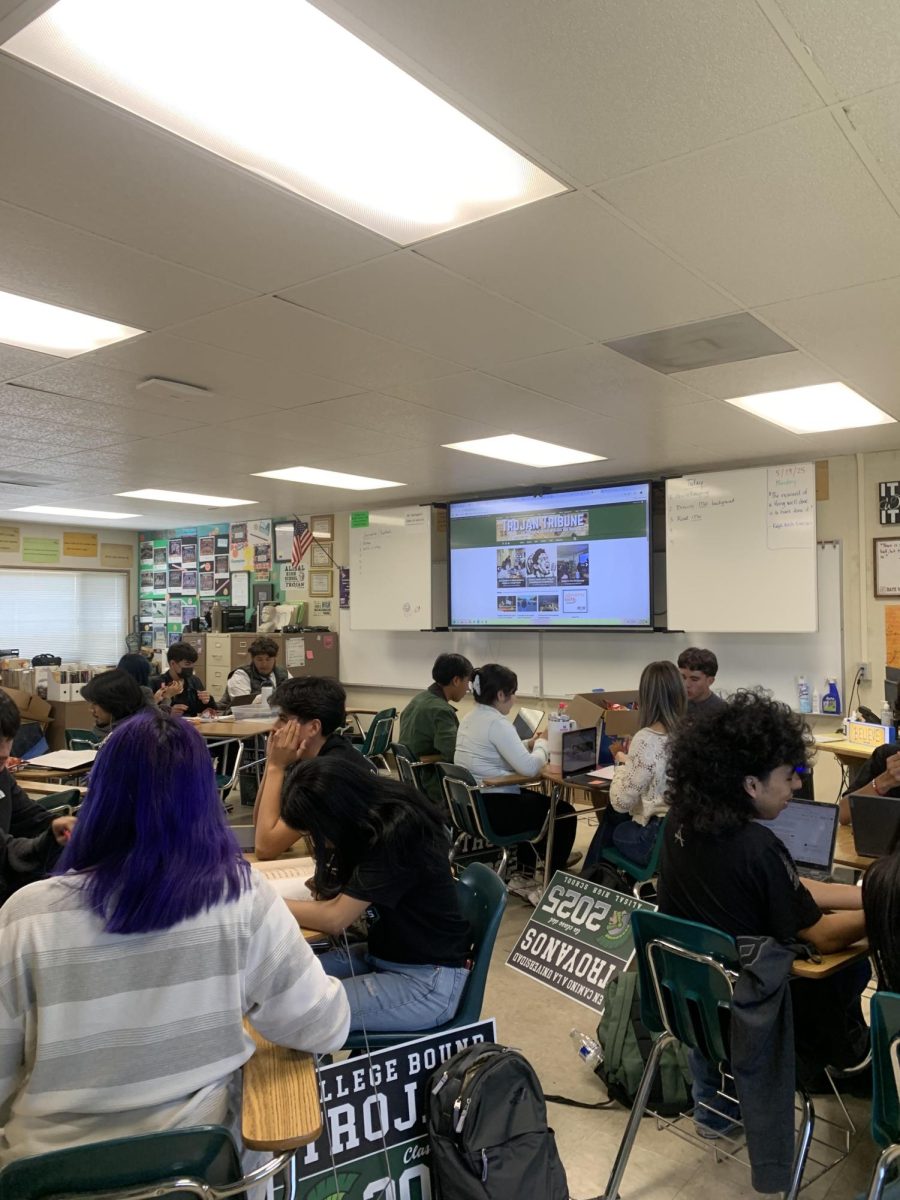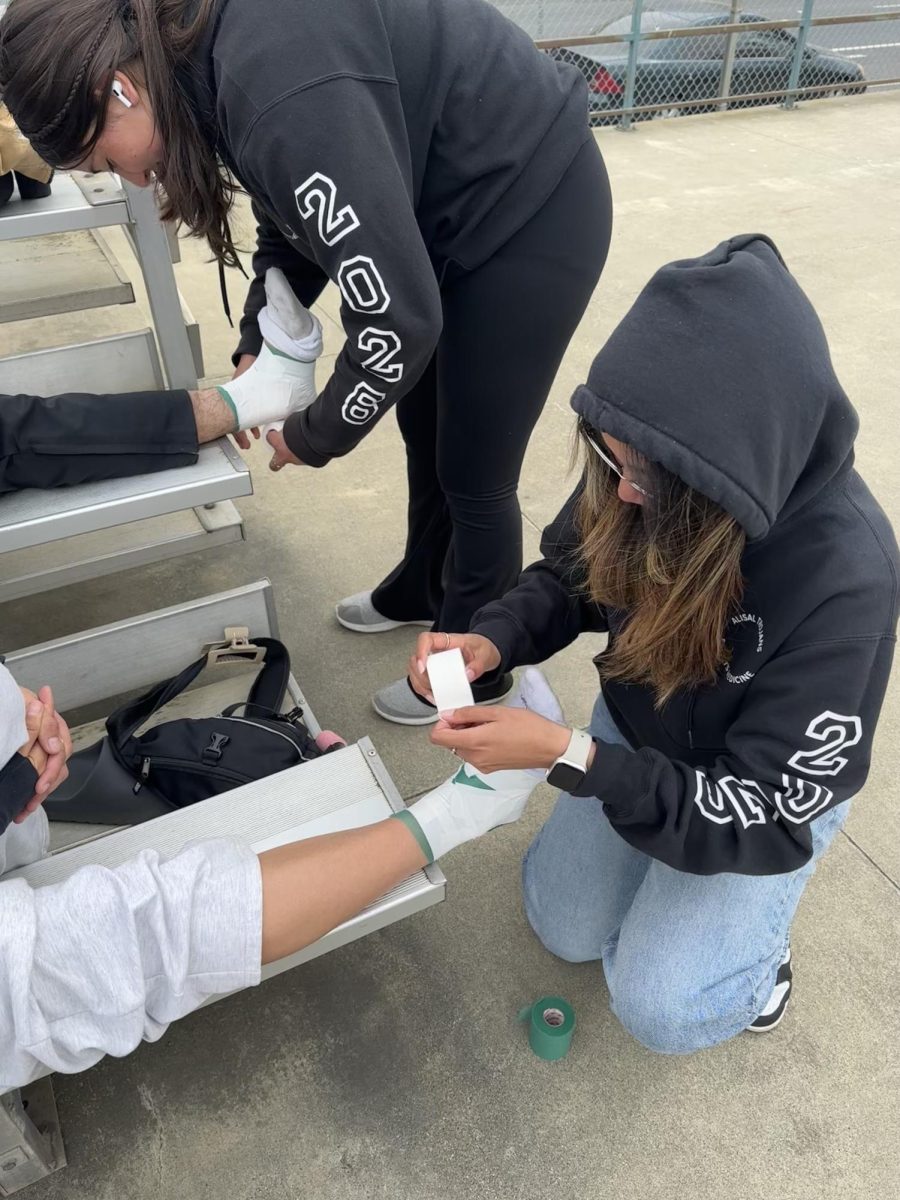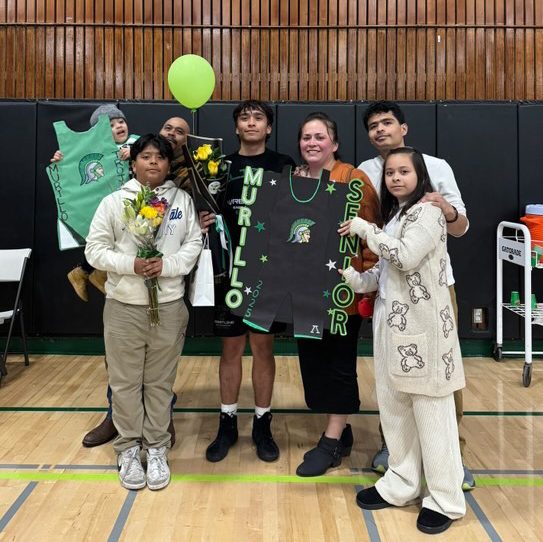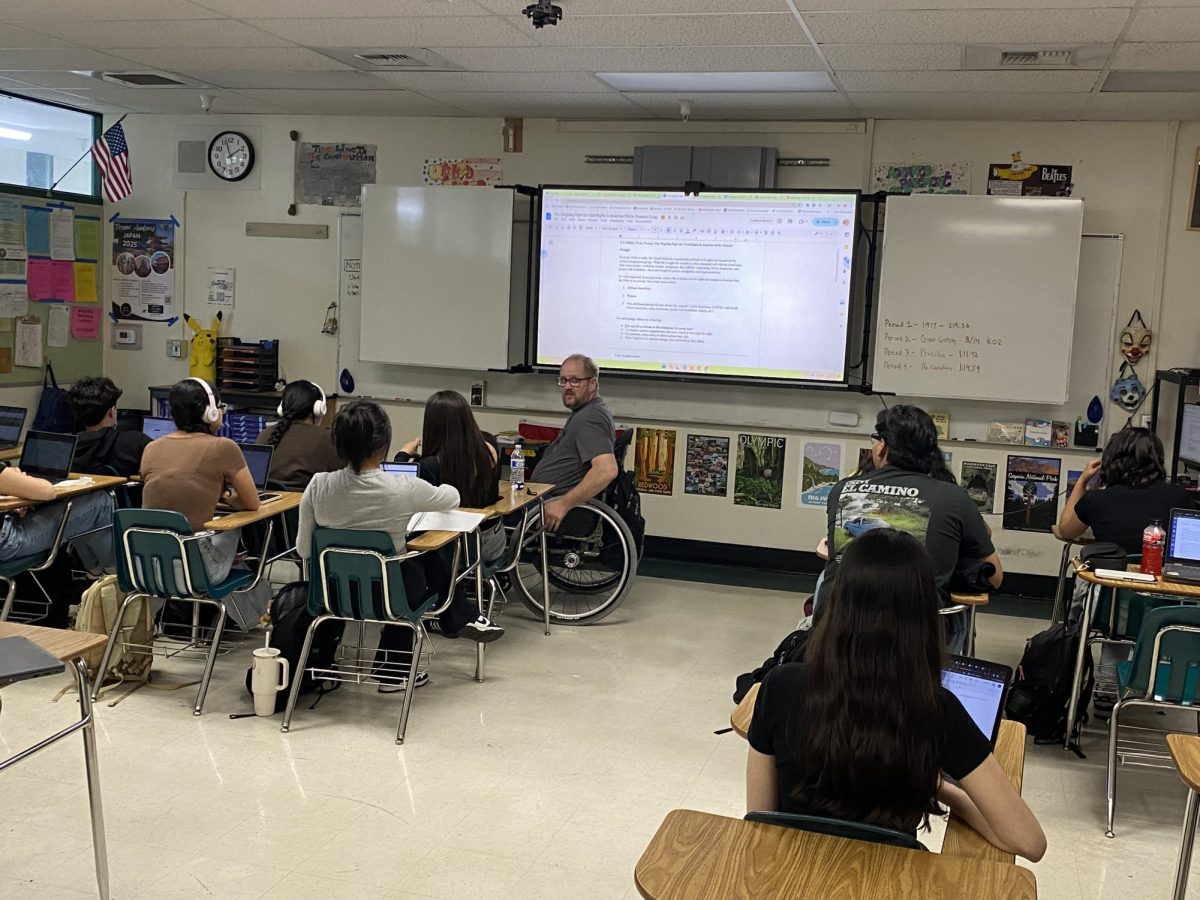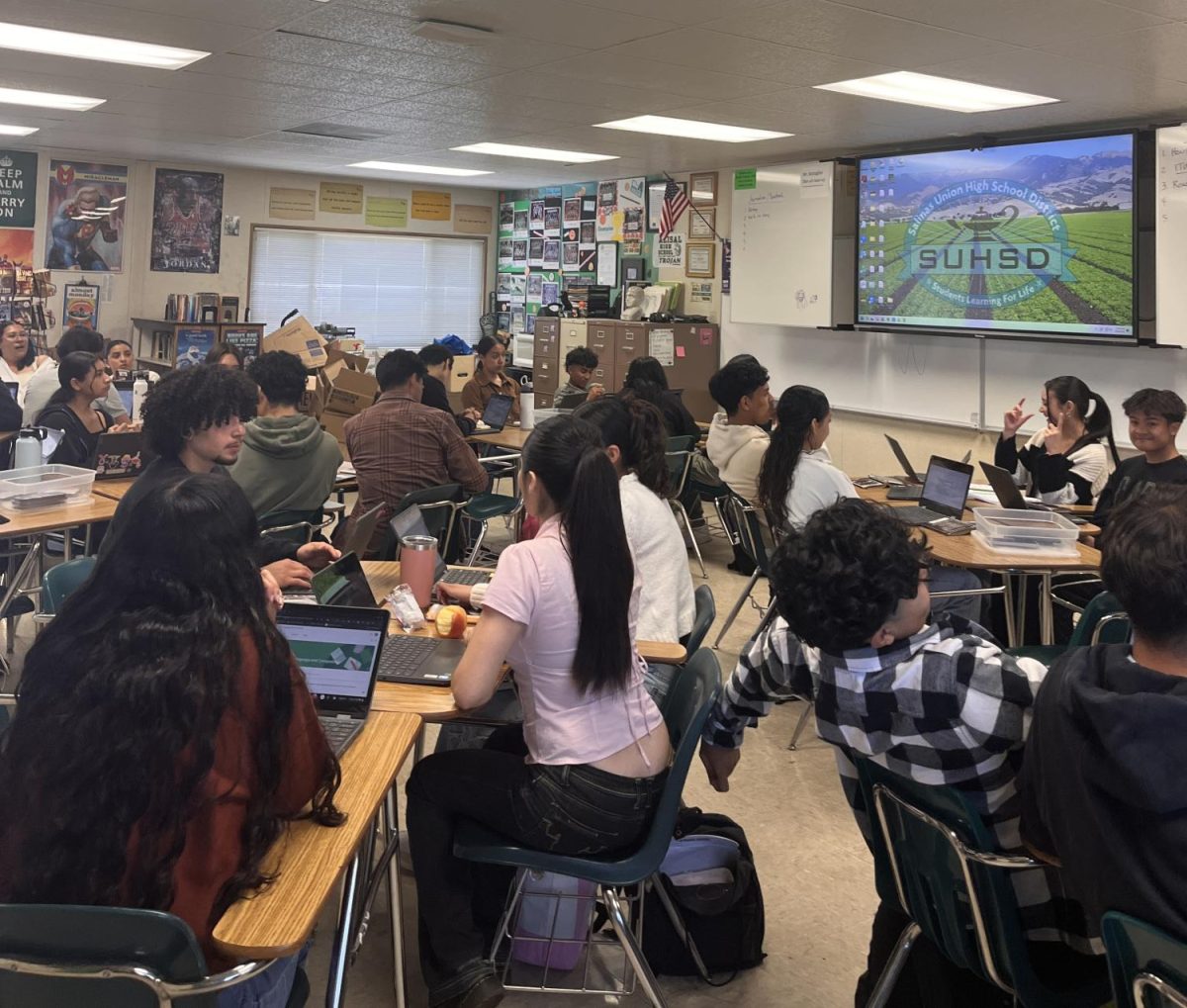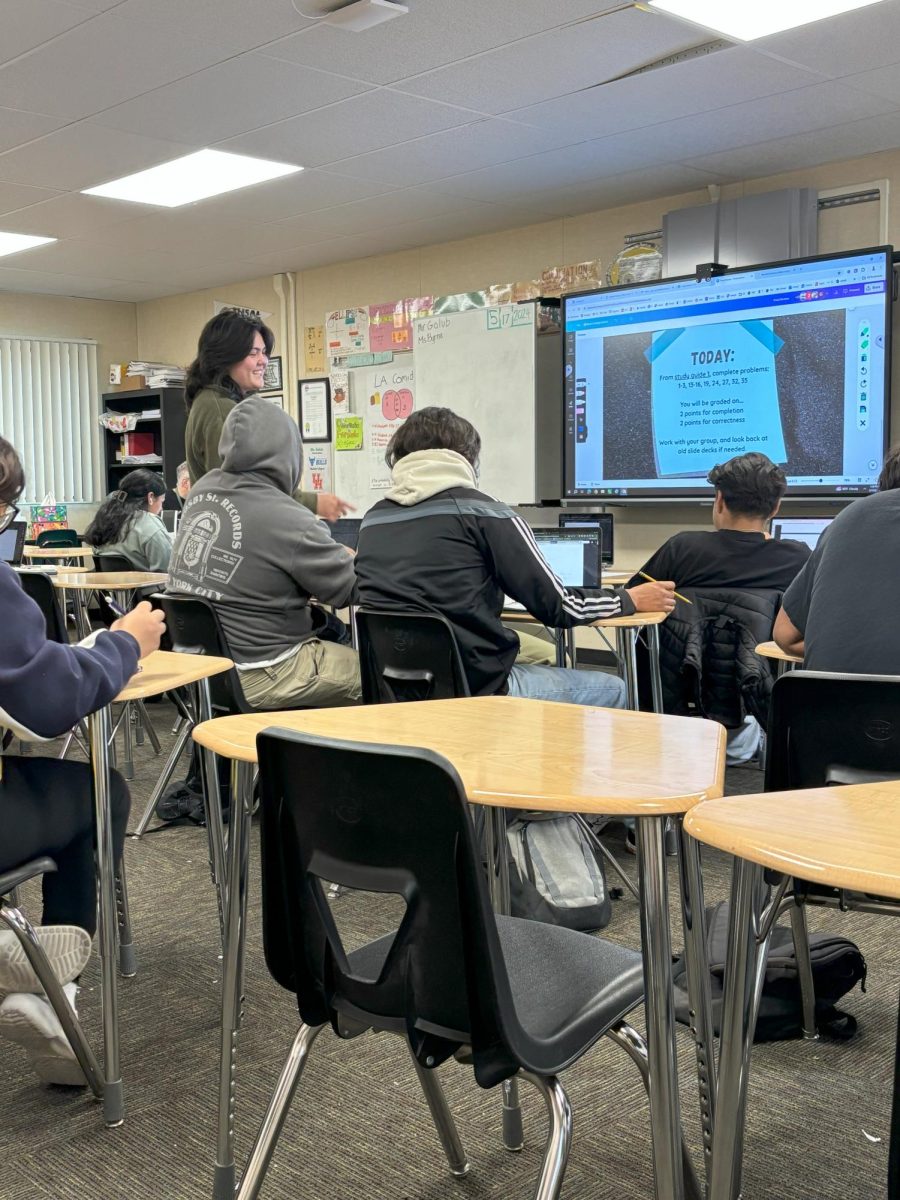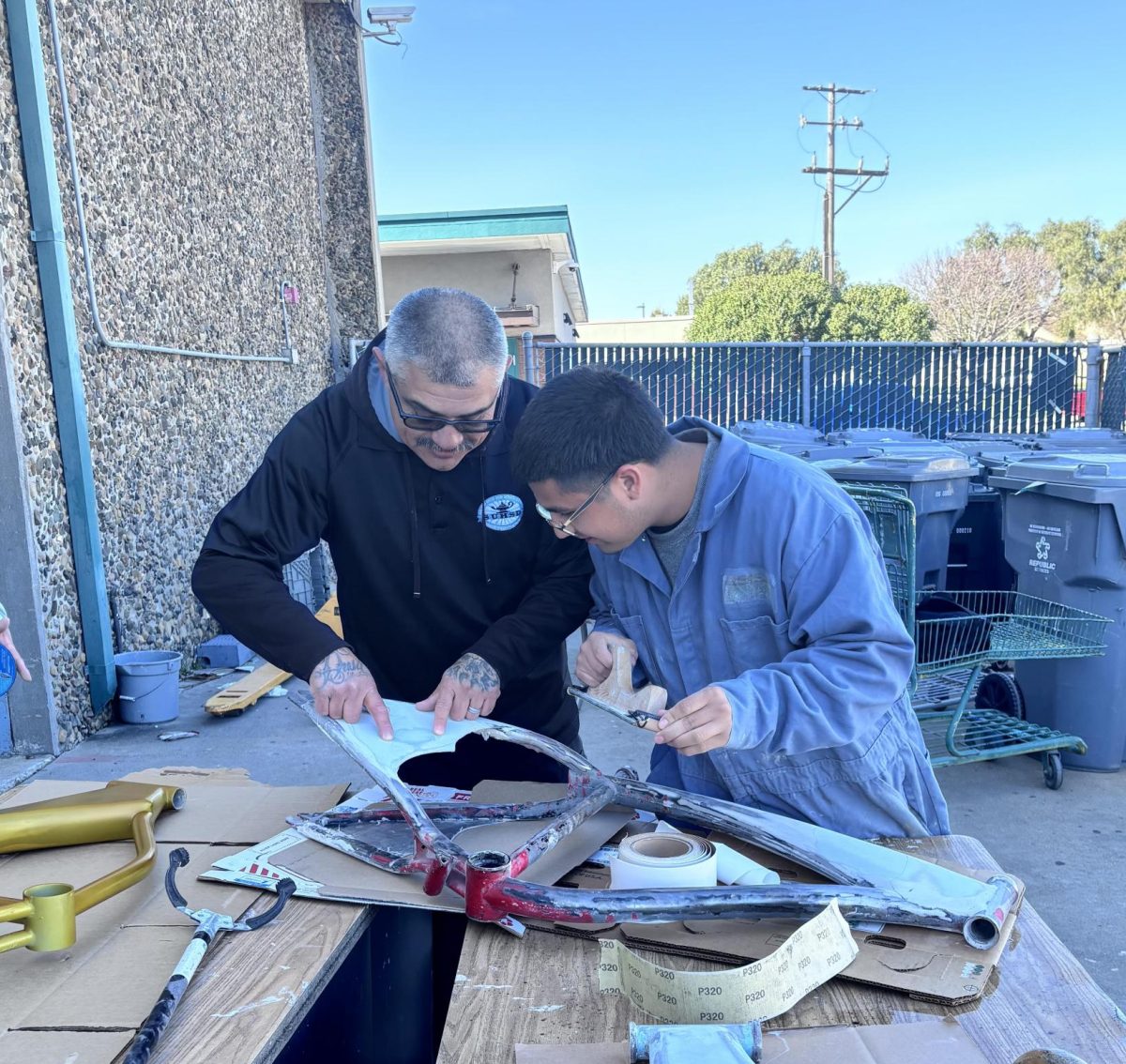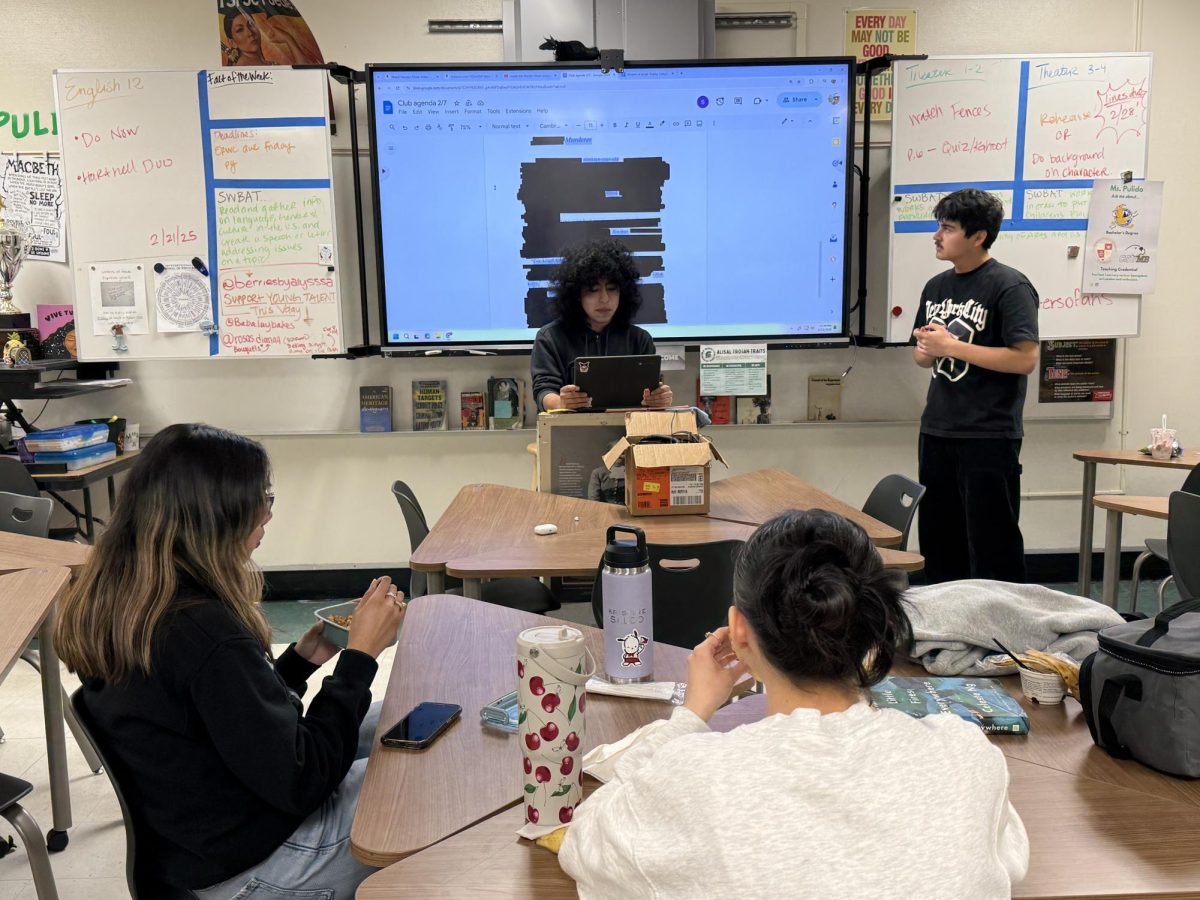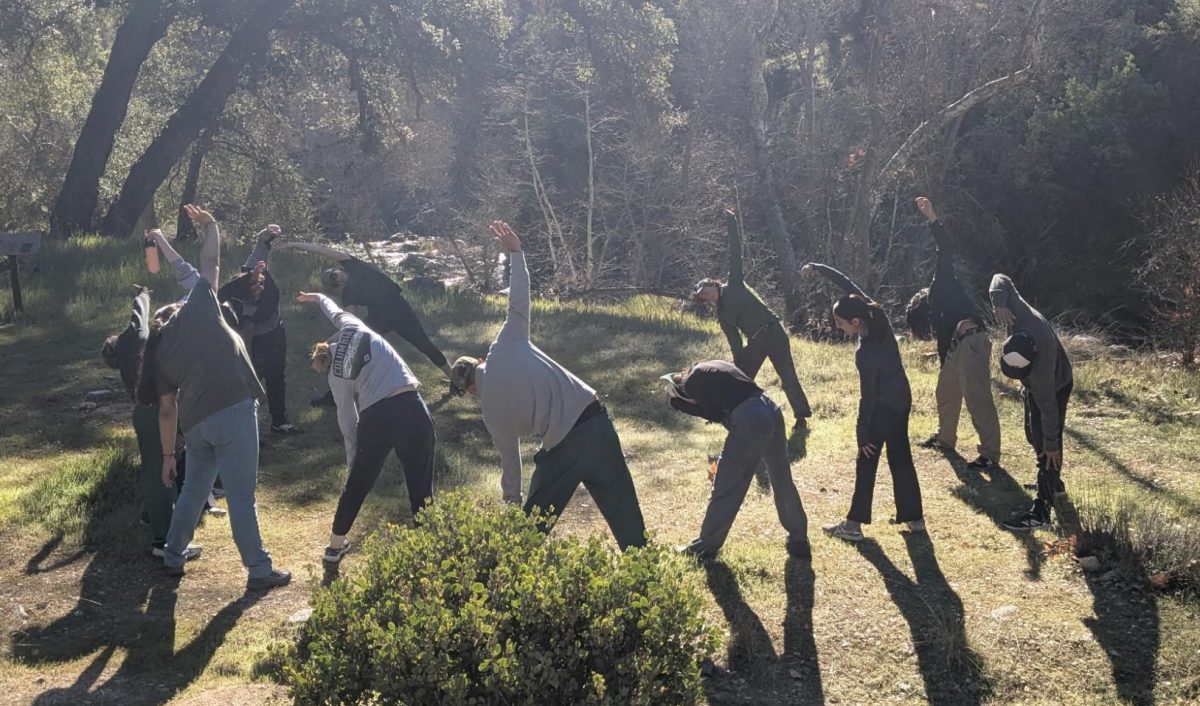Becoming a teacher takes quite a bit – devoting yourself to teaching others and helping them become someone in life is an honorable job many people don’t give enough recognition to.
Cassidy Byrne is currently working as Gary Golub’s co-teacher for his 5th and 6th period Math 2 classes. A co-teacher is someone working to become a teacher who works with the teacher in teaching the classes. “Cassidy Byrne is an excellent student-teacher,” Golub said. “She has mastered her subject matter, and has developed a nice rapport with the students. She has a calming presence in her teaching style, which makes it comforting for the Math 2 students. I feel that she can have a productive career as a math teacher.”
Byrne, whose parents are both teachers, grew up in Stockton, CA, near Sacramento. “It’s a really diverse area, so coming from there to here wasn’t necessarily a cultural shock because I’ve been around a bunch of Hispanic and Latino communities,” she said, “but it was definitely an adjustment because of how predominantly Hispanic communities are around here.” She does like Salinas better than Stockton. “Yeah, I grew up in Sacramento, I got too used to it so it’s nice and refreshing here,” Byrne said.
She’s currently studying at CSUMB for her undergraduate degree in mathematics and is aiming for her Master’s. Byrne hopes to be a high school math teacher for juniors and seniors at Alisal, if possible. “I like working with students especially at the high school age level because I think that they’re really starting to develop their own personalities and I feel like it’s cool seeing that.”
As a co-teacher, Byrne slowly begins to take over one content area. Last semester she was responsible for one Math 2 class. This semester she is responsible for teaching two Math 2 classes where she takes over completely and is responsible for tests and lessons. The most important teaching skill to her is being able to develop relationships with students and being able to understand them. To make lessons, Byrne looks back at Golub’s old lessons and modifies it to what this year’s students need. “I like that I come prepared, but it is hard to think about what the students are going to think because everyday they come up with something different, and I’m like okay I guess that’s a new way of thinking,” Byrne said.
Teaching is difficult in general, and even more so when you’re a student-teacher. Often classes are quiet and don’t contribute much, which is a challenge Byrne faced this year. To keep students’ attention she walks up to them, communicates with them and makes sure to constantly talk to them. “I like letting them talk about things that aren’t necessarily on subject, then I’ll engage in the conversation with them,” Byrne said.
She said she’s learned a lot in terms of adjusting her teaching style to different students and paying attention to each student because each student is different. “You have to approach their learning in a different way,” Byrne said.
This semester Byrnes is talking less and making sure that the students know what they’re doing. Her lesson plans have changed and they involve more collaboration. She makes sure to focus on what they do and don’t know and thinks about how they might answer. “ I’ve been trying to get the students to do most of the work, it’s just them showing me how to do the work,” Byrne said. “The students have reacted positively to Ms. Byrne. She has a good rapport with the students. This makes my job easier because the students are in good hands,” Golub said.
Her favorite thing about teaching is the variety. “Being able to engage with the students, it’s not a boring job at all and it’s different every day which can be tiring at times but I would rather have that than being bored all day,” she said. When she’s not teaching, her hobbies are working out, reading, playing the guitar and piano. “It lets me kind of decompress at the end of the day,” Byrne said.
Byrne is staying in Salinas because she is part of the Residency program which requires her to stay here for 4 years, “They think of it as an investment, so if they pay me for this year for my service it is more likely that I stay in since they need more teachers, specifically like math and science,” she said. “It’s just kind of their way of ensuring that they have teachers for the future years.” She chose to join because she was planning to stay around anyway. She’s hoping to find a teaching job in this district. She is getting a preliminary credential, she will have a mentor teacher for 2 years to make sure she’s on the right track for teaching.
When she becomes a teacher she looks forward to developing her own classroom environment and making sure that the students feel welcomed and safe in there, and that is also their space and also hers.
While everyone has their own opinion on what the most important teaching skill is – some may think it is to be strict to get students to do things – in Byrne’s case, she thinks connecting with them is the most important. “Being able to develop a relationship with the students relating to them knowing about them sharing information about yourself with them so that there is a level of trust,” Byrne said.
Her students agree. “She’s nice, she’s someone you can talk to,” Ruben Regalado said. “She also helps you, if you ever need help just ask, and she’ll help.”

